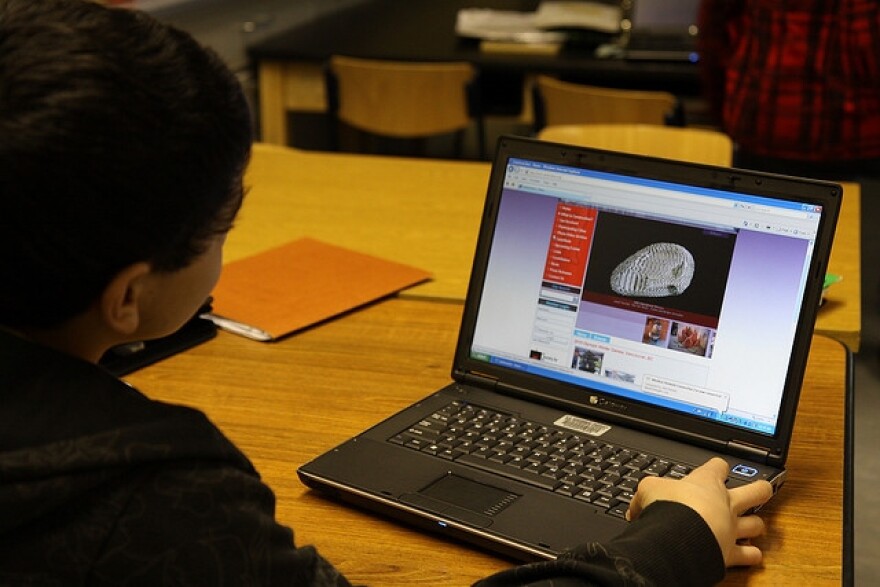A coalition of administrative and teacher associations is issuing recommendations for remote learning in New Hampshire. The guidance comes as districts face long-term school closure until at least May, if not for the rest of the semester.
In a letter issued over the weekend, leaders from the NEA Teachers’ Union, the N.H. Association of School Principals, N.H. Career and Technical Education, the N.H. School Boards Association, the N.H. Association of Special Education Administrators, and the N.H. School Administrators’ Association from the told districts they should “focus on essential learning” and that “less is more.”
They say schools should provide continuous learning opportunities for students four days per week.
They recommend elementary school students spend less than two hours online a day and the rest of their time offline with activities and reading. 6th through 12th graders, they say, should get 30 minutes per teacher online for a maximum of three hours per day.
Dr. Carl Ladd, director of the N.H. School Administrators’ Association, says they developed the recommendations based on other states’ laws for responding to a pandemic, because New Hampshire doesn’t have any (according to a national study, New Hampshire is the only state without clear regulations for how schools should respond to a pandemic.)
The N.H. Department of Education is providing support and resources for remote learning, but without regulatory guidance, Ladd says many districts are left to figure out what remote instruction looks like, including how many hours students should be online and how many days per week school should be in session.
Ladd says the recommendations seeks to help districts continue education remotely but acknowledge that parents cannot be expected to replace teachers, and students will miss certain types of instruction and emotional behavioral support.
“Do I think that teachers are going to hit every competency and every standard? No, I don’t think that’s humanly possible,” he said. “The key right now is to keep students engaged and involved and connect with them on a daily basis.”









